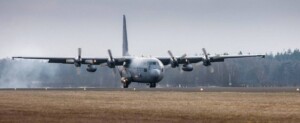Sudan: a glimmer of political hope
Leading members of the AU-IGAD-UN Trilateral Mechanism published a statement on the negotiations between the mainstream Forces of Freedom and Change (FFC) and Sudan’s military junta on a new constitutional framework yesterday. They talk about ‘a glimmer of political hope’ and write that “we now have a workable document upon which further consensus can be built” and that “we must take advantage of this moment to reach an agreement among the Sudanese stakeholders”.
 Trilateral Mechanism representatives (UNITAMS)
Trilateral Mechanism representatives (UNITAMS)
Leading members of the AU-IGAD-UN Trilateral Mechanism published a statement on the negotiations between the mainstream Forces of Freedom and Change (FFC) and Sudan's military junta on a new constitutional framework yesterday. They talk about 'a glimmer of political hope' and write that "we now have a workable document upon which further consensus can be built" and that "we must take advantage of this moment to reach an agreement among the Sudanese stakeholders".
Mohamed Belaiche, Ambassador for the African Union (AU) to Sudan, Volker Perthes, United Nations Special Representative for the Secretary-General for Sudan and head of the United Nations Integrated Transition Assistance Mission in Sudan (UNITAMS), and Ismail Wais, Special Envoy of the Intergovernmental Authority on Development (IGAD) explain that the Trilateral Mechanism will facilitate a new set of negotiation meetings.
These meetings will take place between Sudanese stakeholders to reach a comprehensive agreement over a draft constitution to find a solution to the political crisis and prepare the country for full democratic governance. What follows are the authors' perspectives and hopes for these new negotiations.
A glimmer of political hope
Two weeks ago, the Trilateral Mechanism received a document from the military leadership with their comments and amendments to the draft constitutional document prepared under the aegis of the Sudanese Bar Association’s Steering Committee.
These amendments reflect basic understandings between the military and their interlocutors from the Forces of Freedom and Change. The original constitutional draft had already made a considerable number of civilian forces coalesce around it. With the basic acceptance of the draft by the military, we now have a workable document upon which further consensus can be built.
The military and civilian groups have asked us to start facilitating a new political process based on this draft, and we have indeed begun a new series of meetings with civilian stakeholders to find a solution to the political crisis ongoing since last year’s coup.
'It would be wrong for any one individual to think their vision can be imposed to guide its course or monopolise power during this temporary timeframe'
A political agreement to end this crisis would at the same time inaugurate a new transitional period. A transition period is, by its very nature, temporary. It should be based on consensus reached between its different components. It would be wrong for any one individual to think their vision can be imposed to guide its course or monopolise power during this temporary timeframe. The transition period should be viewed as a timebound stage to prepare the country for elections and full democratic governance.
The sustainability and success of the transitional period hinges on its stability. Therefore, all actors must fully abide by the provisions and spirit of the agreement reached. And work together to implement and defend it while seeing the country through a short transition. The military component must be united in fully adopting and supporting the agreement concluded with civilians and abide by its leadership's obligations to refrain from interference in political affairs. In turn, the civilians must not reject the provisions demanded by the military component for the transitional period as long as they are reasonable and conducive to a stable transition.
'The military component must […] abide by its leadership's obligations to refrain from interference in political affairs'
Civilians are seeking a fully civilian government, including a civilian head of state and prime minister, with full executive powers during the transitional period and they need institutional and personal guarantees for this. The military does not want unelected civilians to interfere in the affairs of the army during the transitional period. The people, in general, want a fully functional government that can deliver basic services, addresses the economic and social situation, protects civilians and human rights, implements peace agreements, and prepares elections.
We think that these demands can all be realised based on the understandings reached between the military and the civilian negotiators which we have received. We see these understandings as a sound basis for negotiations on substance. Some key issues remain to be resolved, including questions regarding transitional justice. A political agreement reached on this basis will open the door to form a transitional government – to wield executive power during the transitional period and implement the limited tasks needed during that period, not least to prepare the country for elections and stable, long-lasting democracy.
The tasks of any transitional government should be limited in nature and time and should not be expanded beyond the scope of what is acceptable by all parties. It is this civilian temporary government that will be required in order for international partners to turn the development assistance back on for Sudan which will in turn bring more stability to the country.
'It is this civilian temporary government that will be required in order for international partners to turn the development assistance back on for Sudan'
We in the African Union, IGAD and the United Nations, and the rest of the international community will remain ready to provide any technical support for the new government as it makes its way along the transitional path to democracy. Time is of the essence to not only establish this newly civilian-led government but also to sustain the momentum needed to complete the transitional tasks to move to electoral legitimacy. This will allow broader powers based on greater legitimacy enjoyed by the elected government and enable it to perform its tasks more effectively.
Perhaps one of the most important tasks of the transitional government will be to initiate an inclusive national dialogue on constitutional-making issues, which will also address the root causes of conflicts in the country, issues of identity, inequality, the relationship between the center and the regions, and other outstanding issues in Sudan since its independence. This dialogue should take place under the auspices of a Prime Minister and a civilian government committed to democratisation and peace. It will likely have to continue under an elected government following the transition period.
The transitional government should be formed on the basis of competence, not on party affiliations and quotas. This would reflect what the Sudanese themselves are demanding. Political parties and politicians should start preparing for the elections as their gateway to government. The Transitional Legislative Council should also be formed from a broad political spectrum and the Resistance Committees, youth, women, and grassroots groups should be represented in order to play its desired oversight functions effectively.
'The Resistance Committees, youth, women, and grassroots groups should be represented'
In the coming few days, the Trilateral Mechanism will call for indirect and direct talks aiming at translating and realising these understandings in the framework of an implementable agreement. This will be a genuine exercise to reach a national consensus among Sudanese stakeholders based on the current reasonable draft.
We must take advantage of this moment to reach an agreement among the Sudanese stakeholders. Any agreement reached will not happen between those singing from the same song sheet but rather between those who disagree. This is the basis on which the political process is built, to bridge the gap between opposing parties.
The Trilateral Mechanism calls on all Sudanese stakeholders to remain open to the negotiations and agreements reached, knowing that these agreements are temporary in nature and that elections will follow which will better represent the Sudan that the country so desires.
Ensuring wider and greater ownership of any agreement reached by a broad range of civilian political parties and the military will only serve to strengthen its sustainability. Reaching this agreement will greatly improve the economic conditions in the country through the return of development assistance and international cooperation. Also, private investors are likely to renew their interest in Sudan, once they see an agreed-upon fully functional government in place.
Sudan and the Sudanese have lost a lot during the past year since the coup, and it is time to return to the right track of transition towards achieving the slogans of the revolution and the citizens’ desires for a stable, democratic, and prosperous Sudan.
The full statement can be read here.
Disclaimer: The views and opinions expressed in this article are those of the contributing author and do not necessarily reflect the position of Radio Dabanga.











 and then
and then